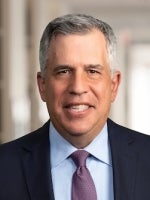This Employment Law This Week Monthly Rundown features a recap of the most important news from October 2018. The episode includes:
1. EEOC Publishes Sexual Harassment Data
Our top story: The Equal Employment Opportunity Commission (“EEOC”) publishes sexual harassment data. Coinciding with the first anniversary of the start of the #MeToo movement, the EEOC has released preliminary data on sexual harassment claims in fiscal year 2018. The agency filed 66 harassment lawsuits in 2018, 41 of which were claims of sexual harassment. The latter represents a 50 percent increase, the first increase in at least eight years. David Garland has more:
"Employers have been aware for some time that there have been more internal issues alleging sexual harassment brought forward to human resources. Lawyers representing employers have been aware that there's an increase in the number of demand letters from lawyers representing individuals making sex harassment allegations. But what this data shows is we've gotten to the next phase. That phase is that charges of discrimination are being filed with the EEOC and specifically alleging sexual harassment. And we're also seeing, and this should not be minimized, it's also quite apparent in the data that the EEOC is taking an aggressive position, filing complaints against employers, making claims of sexual harassment in the workplace, as well."
2. Paid Sick Leave in New York and New Jersey
Paid sick leave continues to catch on across the country with some new developments in the Tri-State Area. New York City recently adopted amendments to its Earned Safe and Sick Time Act, including new requirements for employers’ written sick time policies. Just to the north, Westchester County passed its own paid sick leave law, which is expected to go into effect next April. And on October 29, New Jersey became the 10th state to implement a statewide paid sick leave law. New Jersey employers of all sizes must now provide up to 40 hours of paid sick leave per year to employees. Nancy Gunzenhauser Popper has more:
"The Westchester County sick leave law is actually very similar to both the New Jersey and the New York City sick leave laws. Employees accrue one hour of sick leave for every 30 hours worked, up to a maximum of 40 hours in a year. Westchester County's sick leave law allows front-loading, similar to New Jersey and New York City; however, employers must carry over sick leave into the next year."
Click here for more
3. Seventh Circuit: Class Arbitration Decisions Belong in Courts
The U.S. Court of Appeals for the Seventh Circuit holds that the validity of class waivers should be decided by the courts. The Seventh Circuit relied on the U.S. Supreme Court’s landmark Epic Systems ruling to reverse a district court decision invalidating a mortgage company’s class action waiver. In doing so, the Seventh Circuit took on one of the ancillary issues that has emerged from the Epic ruling. The court held that the availability of class or collective proceedings is a fundamental, gateway issue and, therefore, should be decided by the courts and not arbitrators. The ruling aligns the Seventh Circuit with the Fourth and the Ninth Circuits. The Supreme Court is currently considering the issue this term in Schein v. Archer.
Click here for more
4. The NLRB in Transition
Changes at the National Labor Relations Board (“NLRB” or “Board”) are picking up pace as President Trump’s appointees settle in. The recently proposed joint-employer rule would return to the “indirect control” standard and do away with expansions under the Obama administration. The General Counsel’s office is implementing organizational changes that will centralize decision-making on cases. At the same time, the General Counsel recently published some guidance for employers that was developed by the previous administration. Jay Sharma, Associate General Counsel for Tesla, tells us how employers like his are navigating this transition:
"What we've seen with the recent appointments [is] that the Board has taken a shift back to being a bit more employer-friendly and balancing a little bit more rights of employers. One of the significant decisions of the recent Board was the Boeing case, which dealt with workplace rules. And the General Counsel for the Board issued some guidance, which has been very helpful for employers in dividing workplace rules into three categories. So, employers now can, and should, review all their workplace policies with labor counsel to see where the policies fall and hopefully make them fall, revise them to make them fall into the first category, which would be upheld."






 />i
/>i
